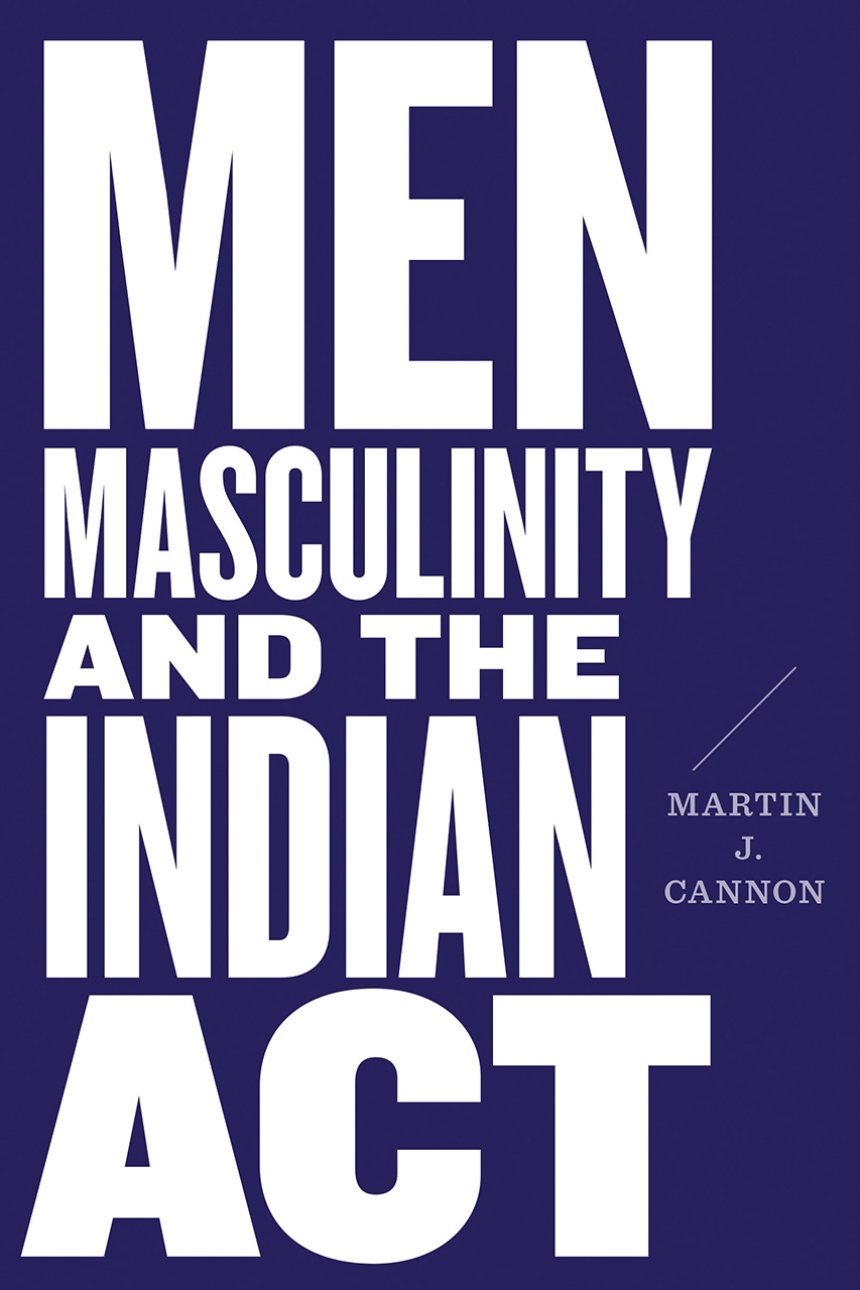Distributed for University of British Columbia Press
Men, Masculinity, and the Indian Act
Canada’s Indian Act is infamously sexist. Many iterations of the legislation conferred a woman’s status rights through marriage, and even once it was amended First Nations women could not necessarily pass their status on to their descendants. What has that injustice meant for First Nations men? Martin J. Cannon challenges a decades-long assumption that the act has affected Indigenous people as either “women” or “Indians” – but not both. He argues that sexism and racialization within the law must instead be understood as interlocking forms of discrimination that disrupt gender complementarity and undercut the identities of Indigenous men through their female forebears.
192 pages | 6 x 9 | © 2019
Table of Contents
Introduction
1 The Indian Act, a Legacy of Racist Patriarchy
2 Sexism, Racialized Injustice, and Lavell v Canada, 1969–73
3 Individual versus Collective Rights Dispute in Status Indian Politics, 1985–99
4 Sexism, Indigenous Sovereignty, and McIvor v The Registrar, 2007–09
Conclusion
Notes; References; Index

